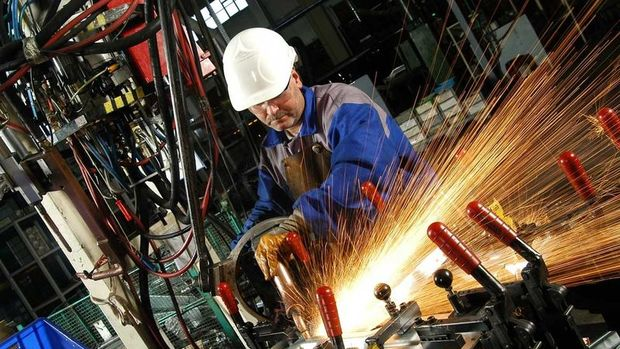Manufacturing PMI at lowest level since pandemic
The Istanbul Chamber of Industry Turkey Manufacturing PMI, which is accepted as a reference in manufacturing industry performance, which is a leading indicator of economic growth, fell to 45.7 in November and remained below the threshold value of 50 for the ninth consecutive month. The deterioration observed in operating conditions was at the most significant level seen since the first Covid-19 wave in early 2020. The ISO Manufacturing PMI fell from 46.4 in October to 45.7 and remained below the threshold value of 50 for the ninth consecutive month. The deterioration observed in operating conditions was at the most significant level seen since the first Covid-19 wave in early 2020. The most striking development in the latest PMI survey was the weakness in demand in both domestic and foreign markets. Accordingly, total new orders and new export orders exhibited the most significant loss of momentum in the last two and a half years. The US and Europe stood out as the main sources of the decline in demand in new export orders. Companies reported that insufficient demand in main export markets was effective in the slowdown in manufacturing industry production. The slowdown in production has reached its 12th month. In November, input cost inflation slowed down sharply and input price increases were at their lowest rate in the last three years. While the increase in raw material prices and the depreciation of the lira were effective in increasing costs, low input demand had a limiting effect on inflation. The weakness in input demand also brought about a significant improvement in supplier performance. Indeed, the decrease in delivery times was at its most significant level in the survey history, except for July 2005. In parallel with the decreasing trend in input costs, final product price inflation also lost momentum. Although the increase in product prices was strong in November, it was recorded at its lowest level since August. Finally, after a two-month decline, employment started to increase again in November. On the other hand, this increase was quite limited. Andrew Harker, Economic Director of S&P Global Market Intelligence, commented on the survey data for the Turkish Manufacturing PMI at the Istanbul Chamber of Industry, saying: “With the difficulties caused by the weakness in global manufacturing demand for Turkish manufacturers, production and new orders slowed down in November. On the other hand, the decline in input demand has also helped ease some of the difficulties that firms have been facing for a while. In particular, the decline in input cost inflation to its lowest level in the last three years was noteworthy. Supplier delivery times experienced the second sharpest decline in the survey history dating back to 2005.”


